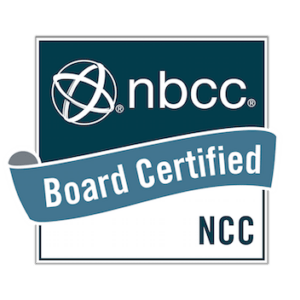Anxiety can feel overwhelming, affecting both your mind and body in ways that make everyday life more difficult. If you’ve ever experienced a racing heart, shortness of breath, or trouble sleeping because your mind won’t slow down, you’re not alone. But here’s the good news—your breath is one of the most powerful tools you have to reduce anxiety naturally. By practicing specific breathing techniques for stress relief, you can reset your body’s stress response, calm your nervous system, and regain a sense of control.
At Abundant Living Counseling of Rome, we understand how deeply anxiety can impact daily life. So let’s talk a little bit about the science behind anxiety and breathing, the most effective techniques, and how you can integrate breathwork into your daily routine. We’re gonna help you take your life back!
How Anxiety Affects Your Breathing and Nervous System
The Fight-or-Flight Response
When anxiety kicks in, your body’s fight-or-flight response takes over. This is an automatic survival mechanism that prepares you to deal with perceived threats. (Ever feel like your heart is about to jump out of your chest when a car pulls out in front of you? Yep…fight or flight in action.) However, when stress becomes chronic, your body stays in this heightened state, leading to symptoms like:
- Rapid, shallow breathing (chest breathing)
- Increased heart rate
- Muscle tension and dizziness
- A feeling of breathlessness or tightness in the chest
How Shallow Breathing Increases Anxiety
Shallow breathing sends signals to your brain that reinforce the anxiety loop, making you feel even more on edge. When you breathe rapidly and shallowly, your brain interprets this as a sign of danger, keeping you stuck in a cycle of stress. The flip side to this is that deep breathing exercises for anxiety can activate your parasympathetic nervous system, which promotes relaxation and helps restore balance. So let’s learn more about something we take for granted: breathing. We all do it, but who actually *thinks* about it?
The Benefits of Breathing Techniques for Anxiety Relief
Engaging in intentional breathwork offers a range of mental and physical health benefits, including:
Physiological Benefits
- Reduces heart rate and blood pressure, helping your body enter a state of relaxation.
- Improves oxygen flow, reducing dizziness and increasing energy levels.
- Relaxes tense muscles, counteracting the physical toll of stress.
Mental and Emotional Benefits
- Enhances focus and clarity, making it easier to manage anxious thoughts.
- Reduces overthinking, breaking the cycle of ruminating on worries.
- Promotes emotional regulation, helping you feel more in control during stressful moments.
Long-Term Impact on Stress Resilience
- Regular breathwork can help train your body to respond to stress in a calmer, more measured way.
- By making breathing exercises a habit, you build a foundation for long-term anxiety management.
Best Breathing Techniques for Anxiety and Stress Relief
Incorporating structured breathing exercises into your routine can significantly improve how you handle anxiety. Here are three of the most effective techniques:
Diaphragmatic Breathing (Belly Breathing)
This deep breathing technique encourages full oxygen exchange, making you more relaxed.
Try it out:
- Sit or lie down comfortably.
- Place one hand on your chest and the other on your belly.
- Inhale deeply through your nose, allowing your belly to rise while keeping your chest still.
- Exhale slowly through your mouth.
Why It Works: Deep breathing reduces stress, slows heart rate, and relieves chest tightness.
🛑 Pro Tip: Try placing a small pillow or stuffed animal on your belly to visualize your breath moving.
4-7-8 Breathing Method
A scientifically backed method that engages the parasympathetic nervous system to help you relax.
Try it out:
- Inhale deeply through your nose for 4 seconds.
- Hold your breath for 7 seconds. (I know; it seems like a long time, but you can do it!)
- Exhale slowly through your mouth for 8 seconds.
Why It Works: This technique promotes calmness, better sleep, and reduced anxiety.
💡 Fun Fact: The 4-7-8 method has been called a “natural tranquilizer for the nervous system” by it’s developer, Dr. Andrew Weil.
Box Breathing (Square Breathing)
This one may sound familiar if you’ve worked with me. Often used by first responders and athletes, this breathing pattern helps with focus and stress relief.
Try it out:
- Inhale through your nose for 4 seconds.
- Hold your breath for 4 seconds.
- Exhale through your mouth for 4 seconds.
- Hold your breath for another 4 seconds, then repeat.
Why It Works: Helps stabilize breathing, reduce stress, and improve mental clarity.
📌 Try this: Trace a box shape with your finger while breathing to stay focused.
How to Incorporate Breathwork Into Your Daily Routine
The more you practice, the easier it is to use these techniques when you need them. Want to make them a habit? Here’s how to integrate breathwork into daily life:
- Morning Routine: Start your day with 5 minutes of diaphragmatic breathing.
- During Stressful Moments: Use 4-7-8 breathing before a big meeting or decision.
- Before Bedtime: Practice deep breathing exercises for sleep to wind down.
Additional Ways to Manage Anxiety Naturally
While breathing exercises are powerful, they work even better when combined with other natural anxiety relief strategies:
- Practice mindfulness: Engage in prayer, journaling, or grounding exercises to stay present.
- Reduce the caffeine intake: Yikes! I know; I know. We all love our coffee, but too much caffeine can heighten anxiety symptoms and disrupt breathing patterns.
- Engage in physical activity: Low impact activities like yoga, walking, or stretching help regulate breathing and lower stress.
- Prioritize sleep: Aahhh yes…sweet sleep! Create a calming nighttime routine to improve sleep quality and reduce anxiety levels.
- Seek support: If anxiety is affecting your daily life, Abundant Living Counseling can provide deeper guidance and personalized strategies.
When to Seek Professional Help for Anxiety
If anxiety becomes overwhelming, professional counseling can be a game-changer. Here are signs it may be time to seek support:
- Your anxiety interferes with daily life or relationships.
- You experience frequent panic attacks or trouble sleeping.
- Breathing exercises aren’t enough to manage stress on their own.
At Abundant Living Counseling of Rome, we offer faith-based anxiety therapy to help you find peace and healing. Whether you’re looking for Christian counseling for stress relief or practical tools for managing anxiety, we’re here to support you.
📞 Contact us today to schedule an appointment and take the first step toward anxiety relief!





